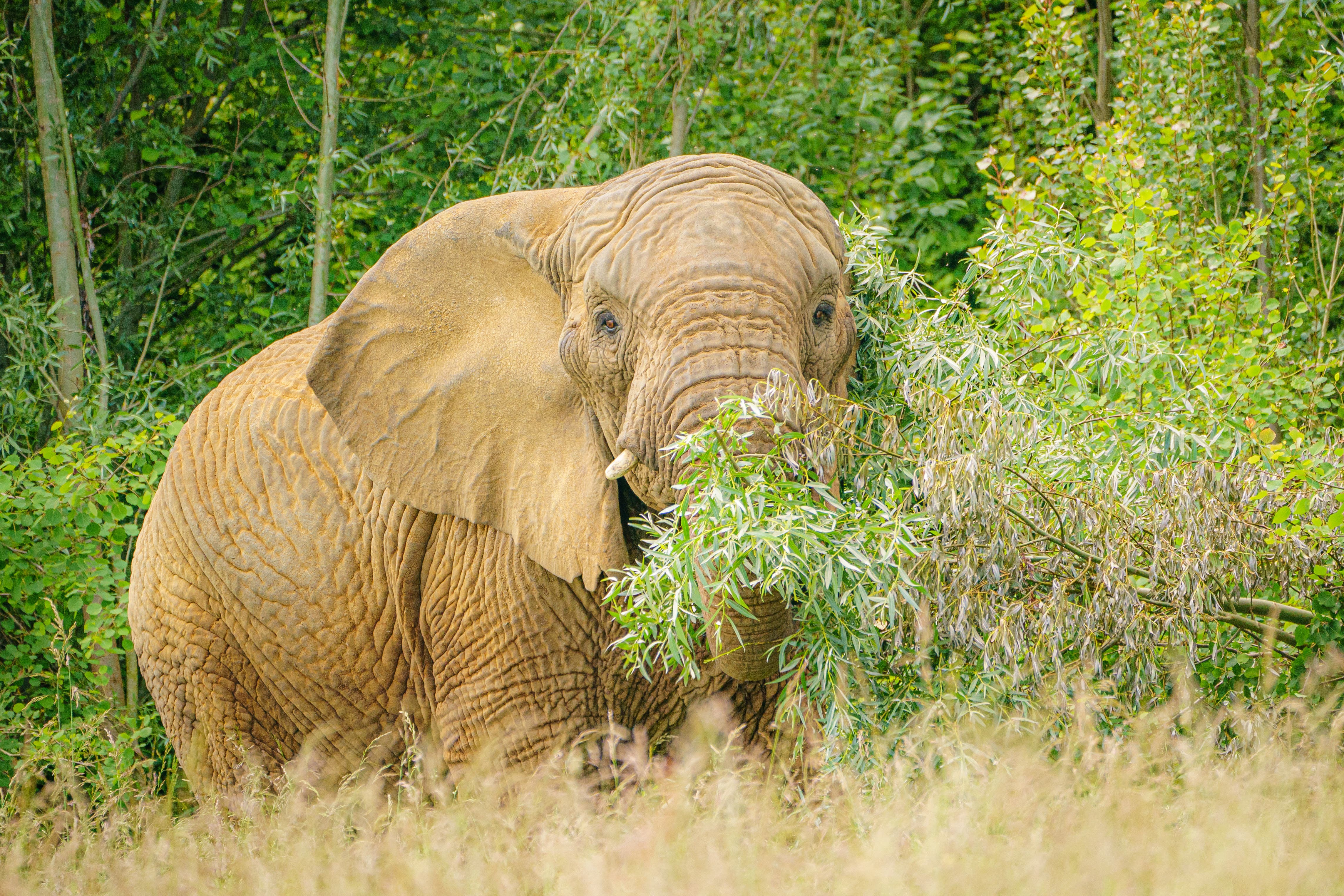Elephants vary what they eat for dinner each night, study suggests
It is well known that the animals eat leaves, yet figuring out exactly what kind they eat can be more complicated.

Elephants may vary what they eat for dinner every night, just like humans, new research suggests.
It is well known that the animals eat leaves, yet figuring out exactly what kind of plants the herbivores chomp on is more complicated.
A new study used innovative methods to efficiently and precisely analyse the dietary habits of two groups of elephants in Kenya, down to the specific types of plants eaten by which animals in the group.
By better understanding what each individual eats, we can better manage iconic species like elephants, rhinos and bison to ensure their populations can grow in sustainable ways
Researchers say their findings help answer important questions about the foraging behaviour of groups, and aid biologists in understanding conservation approaches that best keep elephants not only sated but satisfied.
The study found that elephants vary their diets based not only on what is available, but also their preferences and physiological needs.
For example, a pregnant elephant may have different cravings and requirements at various times in her pregnancy.
The findings also inform theories of why a group of elephants may forage together – the individual animals do not always eat exactly the same plants at the same time, so there will usually be enough plants to go around.
Study author Tyler Kartzinel is an assistant professor of environmental studies and of ecology, evolution and organismal biology at Brown University in the US.
He said: “By better understanding what each individual eats, we can better manage iconic species like elephants, rhinos and bison to ensure their populations can grow in sustainable ways.”
One of the main tools that the scientists used to conduct their study is called DNA metabarcoding, a genetic technique that allows researchers to identify the composition of biological samples by matching the extracted DNA fragments representing an elephant’s food to a library of plant DNA barcodes.
Mr Kartzinel said: “When I talk to non-ecologists, they are stunned to learn that we have never really had a clear picture of what all of these charismatic large mammals actually eat in nature.
“The reason is that these animals are difficult and dangerous to observe from up-close, they move long distances, they feed at night and in thick bush and a lot of the plants they feed on are quite small.”
Additionally, the researchers suggest what elephants eat can be nearly impossible to identify by eye, even for an expert botanist.
The study, published in Royal Society Open Science, also found that dietary differences among individual elephants were often far greater than had been previously assumed, even among family members that foraged together on a given day.
Mr Kartzinel said: “Wildlife populations need access to diverse dietary resources to prosper.
“Each elephant needs variety, a little bit of spice – not literally in their food, but in their dietary habits.”
Bookmark popover
Removed from bookmarks